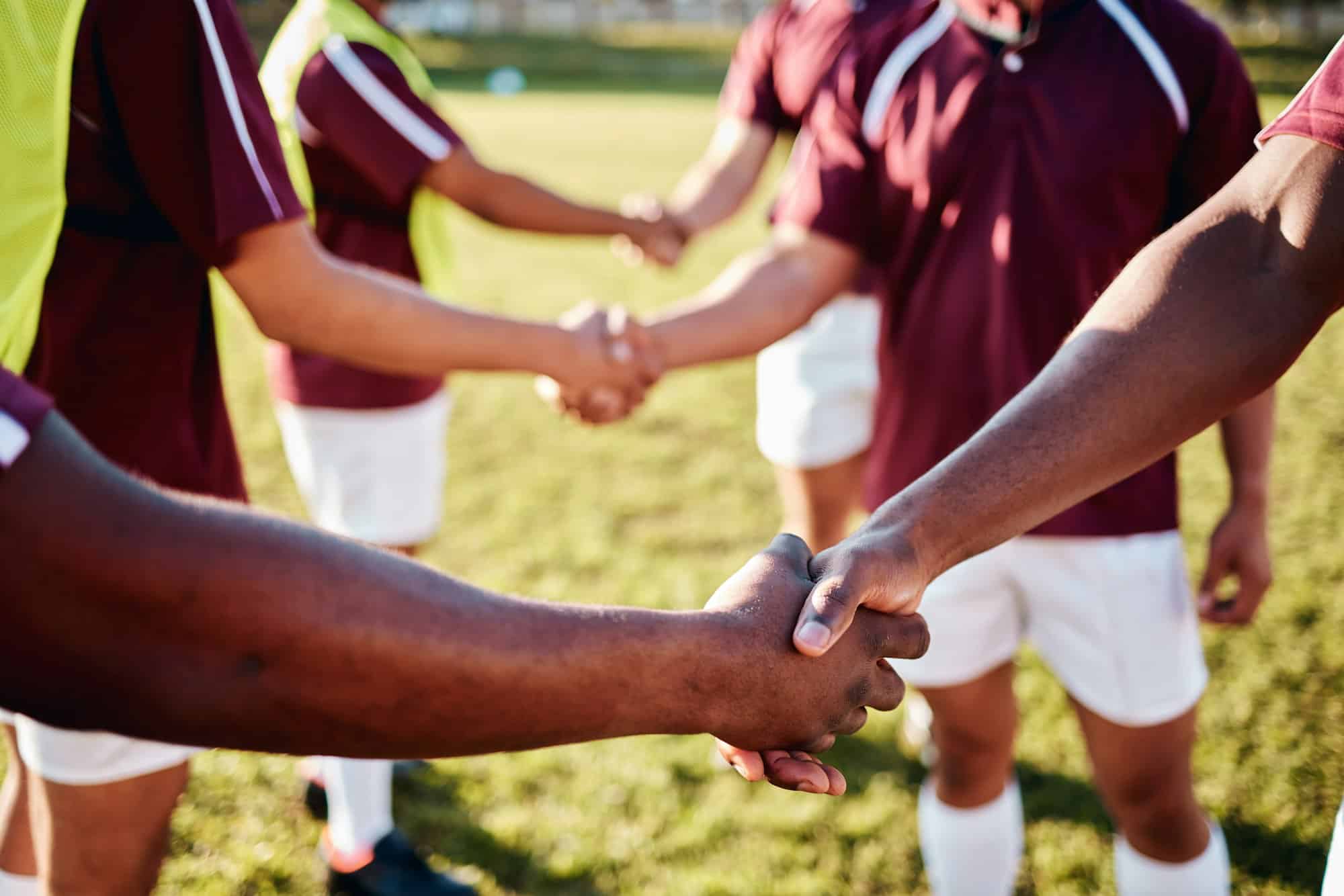How can sports be used as a tool for conflict resolution and peace-building in international relations?

Today, you are going to explore an unusual, but incredibly powerful and effective tool in conflict resolution and peacebuilding. And no, it is not a new diplomatic strategy, nor is it a high-tech military device. It is something far more accessible and universal – sports. From the local communities to the global stage, the realm of sports has the potential to transcend the barriers of language, culture, and politics, making it an ideal platform for fostering peace, building bridges between conflicting parties, and promoting social and international development.
How Sports Facilitate Peace and Conflict Resolution
Before diving into how sports can promote peace and resolve conflicts, it’s crucial to understand why sports hold such transformative power. For countless centuries, sports have played a fundamental part in societies worldwide. They unite people, regardless of their differences, and create an environment where the focus is not on the conflict or disagreement, but on the game at hand.
En parallèle : What are the cultural traditions associated with sports in different regions of the world?
Whether it is a game of football in a local park or an international sports event, the principles remain the same. When you play, you respect the rules, you work together towards a common goal, and, most importantly, you learn to see your opponent not as an enemy, but as an equal with whom you share the joy of the game.
On a wider scale, sporting events often serve as a neutral ground where nations can put aside their disputes and engage in friendly competition. For example, the Olympics have long been considered a symbol of global unity and peace, where athletes from war-torn nations can compete, representing their countries with pride, rather than hostility.
Sujet a lire : How are sports venues designed to enhance the overall fan experience?
Sports and Diplomacy: A Powerful Duo
Diplomacy and sports may seem like an odd pair at first glance. However, the two go hand in hand more often than you might think. Sports diplomacy refers to the use of sports as a means to influence diplomatic, social, and political relations. Governments and international organizations often use sports as a tool to foster diplomatic ties, promote cultural understanding, and pave the way for peace talks and conflict resolution.
Sports diplomacy takes various forms. It can be as simple as a friendly match between two conflicting nations, or as grand as a multinational sports tournament. Regardless of the scale, the objective remains the same: to utilize the shared love for sports to bridge gaps, mend relations, and ultimately, promote peace.
International Development Through Sports
Sports are not only instrumental in resolving conflicts and building peace; they are also key drivers of international development. They provide opportunities for social and economic growth, encourage communal participation, and contribute significantly to the health and wellbeing of individuals and communities.
The power of sports in international development is recognized by many global entities. The United Nations, for example, has incorporated sports into several of its development and peace-building projects. The organization believes that sports can help foster social integration, promote tolerance, and provide a non-threatening platform where people can learn about conflict resolution and peacebuilding.
Sports and Peacebuilding in War-Torn Communities
In war-torn communities, sports can serve as a beacon of hope, a source of solace, and a tool for recovering and rebuilding. Countries ravaged by war often face immense challenges, from physical destruction to social disintegration. In such scenarios, sports can play a crucial role in restoring a sense of normalcy and unity among the affected people.
There are countless examples of sports-based projects aimed at enabling post-war recovery and peacebuilding. These projects often focus on engaging the youth, as they are the future builders of their communities. By participating in sports, young people can learn about teamwork, respect, and fairness, which are all essential values in peacebuilding and conflict resolution.
The Limitations and Challenges of Using Sports for Peacebuilding
While sports hold enormous potential as a tool for peacebuilding and conflict resolution, they are not without limitations and challenges. The world of sports is not immune to corruption, discrimination, and power imbalances, which can undermine its potential as a peace-building tool.
Furthermore, while sports can bring people together, they alone cannot resolve deep-rooted and complex conflicts. They must be part of a broader, comprehensive strategy that includes diplomatic efforts, socio-economic reforms, and education. Nonetheless, when used effectively and responsibly, sports can undoubtedly contribute to building a more peaceful and harmonious world.
Remember, every game you participate in, every match you watch, and every sports event you support are more than just leisure activities. They are opportunities for building bridges, fostering peace, and resolving conflicts, one game at a time.
Sports and Human Rights: Encouraging Equality and Fair Play
Delving deeper into the domain of sports diplomacy, there’s another crucial aspect to consider – human rights. Sports, by their very nature, promote values of equality, fairness, and respect. These principles are not only applicable on the field, but also translate into broader societal norms and expectations.
In sports, regardless of your nationality, ethnicity, or social status, everyone is subject to the same rules and regulations. This inherent concept of fairness and equity can be a powerful tool in promoting human rights, especially in regions where conflict and inequality prevail.
For instance, during the Cold War, sports events provided a platform for friendly competition and mutual respect between the East and the West, helping to humanize the perceived ‘enemy’. Similarly, the historical ‘Olympic Truce’ used during the ancient Olympic Games allowed warring states to lay down their arms and participate in the games, thereby promoting peace and respect for human life.
Moreover, sports have the potential to empower marginalized and vulnerable groups, such as women, refugees, and individuals with disabilities. The United Nations has recognized the role of sports in advancing human rights and has incorporated it into its sustainable development goals. Therefore, sports can serve as a powerful tool for promoting human rights and fostering a culture of equality and respect, thereby contributing to peacebuilding and conflict resolution.
Public Diplomacy and Sports: Engaging the Public in Peacebuilding
Public diplomacy is the process through which a country communicates with the public in other nations to create a favorable environment for achieving its national interests. With its universal appeal and ability to transcend borders, sports can play a significant role in public diplomacy and foster international relations.
Sports, as part of public diplomacy, can facilitate dialogue and mutual understanding. By showcasing athletes from different countries competing fairly and respectfully against each other, sports can help challenge stereotypes, break down prejudices, and promote a more positive and accurate image of a country. This can help reduce mistrust and hostility, paving the way for more constructive diplomatic relations.
Sports events also provide opportunities for people-to-people interactions, which can foster friendships and cultural exchange. The more people understand each other’s cultures and values, the less likely they are to resort to conflict.
In an era where traditional diplomacy sometimes falls short, sports can thus serve as a ‘soft power’ tool in public diplomacy, promoting mutual respect, understanding, and peace among nations.
Conclusion: The Game-Changing Role of Sports in Peacebuilding and Conflict Resolution
In conclusion, sports, with their universal appeal and ability to transcend cultural and political barriers, are a powerful tool for peacebuilding and conflict resolution. By instilling values of teamwork, respect, and fairness, sports can contribute to building a more peaceful and harmonious world.
From being a medium for sports diplomacy to playing a key role in development peace efforts, sports have proved their mettle in the arena of international relations. They have also showcased their potential in promoting human rights and in public diplomacy, engaging people in the peacebuilding process.
While not a panacea for all conflicts, sports, when combined with other strategic interventions like diplomatic efforts, socio-economic reforms, and education, can go a long way in resolving disputes and building a more peaceful and inclusive world. As the world continues to face numerous conflicts and challenges, the role of sports in peacebuilding and conflict resolution becomes all the more significant.
As we move forward, let’s harness the power of sports to unite us, to inspire us, and to drive us towards a future where peace and harmony reign supreme. Because, in the end, whether it’s on the pitch or in the wider world, isn’t that the ultimate goal worth playing for?
